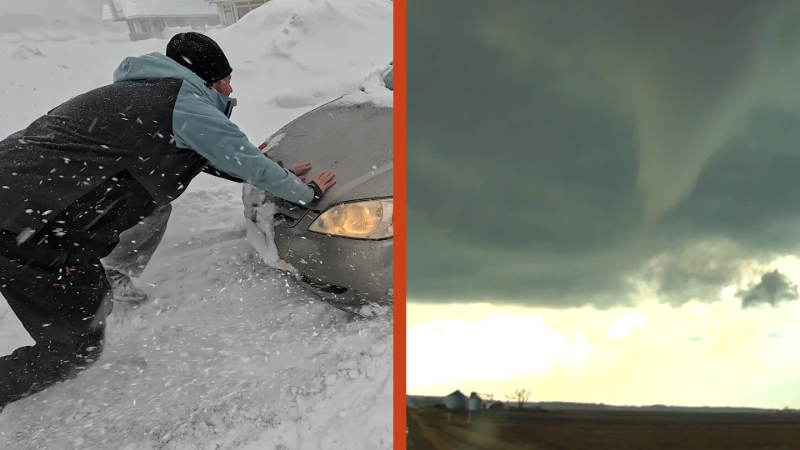Majority of coral reefs examined suffer from low oxygen levels, study says
Researchers discovered that world temperatures continue to rise as marine heat waves became more frequent and severe.

Partner Content
Researchers say corals have been impacted by so much for so long—disease, pollution and climate change. They say marine species rely on coral reefs and humans do too.
(UPI) -- A vast majority of 32 coral reefs examined around the world are suffering from low oxygen levels because of global warming, and the threat to marine ecosystems is expected to get worse, according to a study published Thursday.
The new research is documented in the journal Nature Climate Change, and its authors said this is the first time the current state of low oxygen, or hypoxia, was explored around the world.
The authors, led by researchers from the University of California-San Diego's Scripps Institute of Oceanography, found hypoxia pervasive on many coral reefs, demonstrating the overall decline in oxygen content across the world's oceans and coastal waterways.
A large team of national and international researchers joined the Scripps scientists in documenting the problem.
"This study is unique because our lab worked with a number of collaborators to compile this global oxygen dataset especially focused on coral reefs -- no one has really done that on a global scale before with this number of datasets," marine scientist Ariel Pezner, a post-doctoral fellow at the Smithsonian Marine Station in Florida, said in a news release.
"We were surprised to find that a lot of coral reefs are already experiencing what we would define as hypoxia today under current conditions."
Researchers used models of four different climate change scenarios to show that projected ocean warming and deoxygenation will substantially increase the duration, intensity and severity of hypoxia on coral reefs by 2100.
Pezner and other participants used autonomous sensor data to explore oxygen variability and hypoxia exposure at the 32 diverse reef sites across 12 locations off the coasts of Japan, Hawaii, Panama, Palmyra and Taiwan, among others.
Hypoxia in the past has been defined by a very specific concentration cutoff of oxygen in the water, often less than 2 milligrams of oxygen per liter. That threshold was determined in the 1950s.
The researchers explored the possibility of four different hypoxia thresholds because of the different environments, including weak, mild, moderate and severe hypoxia.

Ariel Penzner is shown diving off Taiping Island, South China Sea. (Photo by Travis Courtney)
Based on the new categories, they found that more than 84% of the reefs in this study experienced "weak to moderate" hypoxia and 13% experienced "severe" hypoxia at some point during the research.
The authors found that oxygen was lowest in the early morning at all locations and highest in the mid-afternoon as a result of nighttime respiration and daytime photosynthesis, respectively.
"Imagine that you're a person who is used to sea-level conditions, and then every night you have to go to sleep somewhere in the Rocky Mountains, where the air has less oxygen," biogeochemist and lead author Andreas Andersson said.
"This is similar to what these corals are experiencing at nighttime and in the early morning when they experience hypoxia. In the future, if the duration and intensity of these hypoxic events get worse, then it might be like sleeping on Mount Everest every night."
Pezner worked with Andersson at the Scripps Coastal and Open Ocean Biogeochemistry Research Lab, known as SCOOBY.
Researchers discovered that world temperatures continue to rise as marine heat waves became more frequent and severe. They said low oxygen conditions on coral reefs are likely to become more common.
"Baseline oxygen conditions varied widely among our reef habitats, suggesting that a singular definition of 'hypoxia' may not be reasonable for all environments," Pezner said.
"Determining which thresholds are relevant will be important moving forward in making predictions about how reefs might change under warming and oxygen loss."
This study involved a total of 22 authors, representing 14 research organizations and universities -- UC San Diego; University of Puerto Rico at Mayagüez; NOAA Pacific Islands Fisheries Science Center; National Taiwan Ocean University; Georgia Southern University and the University of Montana; the Smithsonian Tropical Research Institute; National Sun Yat-sen University; Okinawa Institute of Science and Technology; Sea Education Association; Monterey Bay Aquarium Research Institute; National Taiwan University; and the U.S. Geological Survey.
The study is just the latest documenting the challenges facing coral reefs globally. Last October, a study published in the journal PLOS Biology said half of the world's coral reefs could be facing "unsuitable conditions" by the year 2035 if climate change continues at its current pace.
Researchers at the University of Hawai'i at MÄnoa warned those conditions could occur under a worst-case scenario of climate change.
Report a Typo















